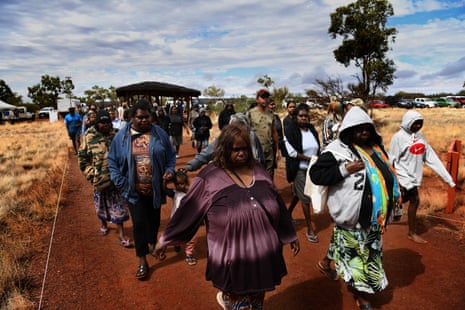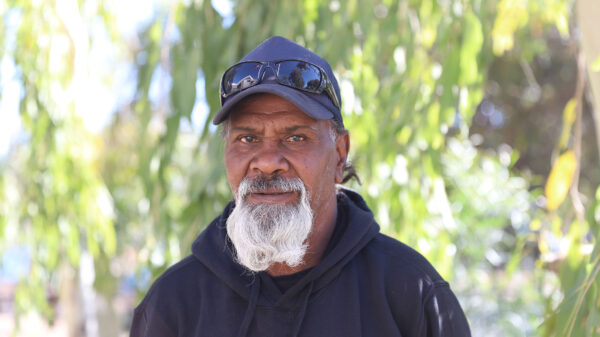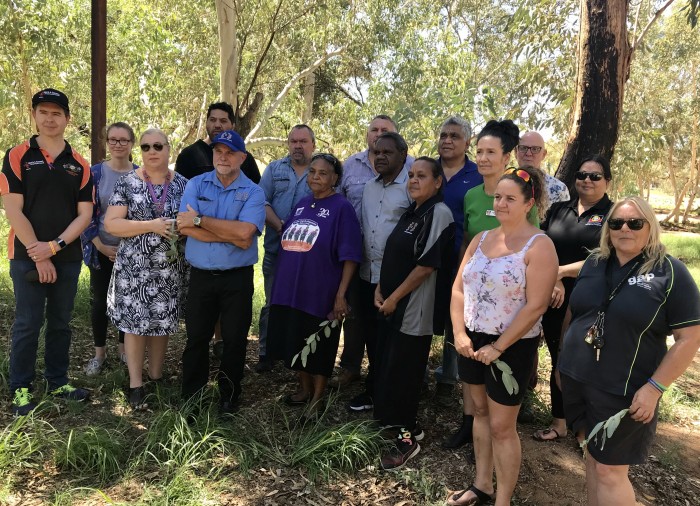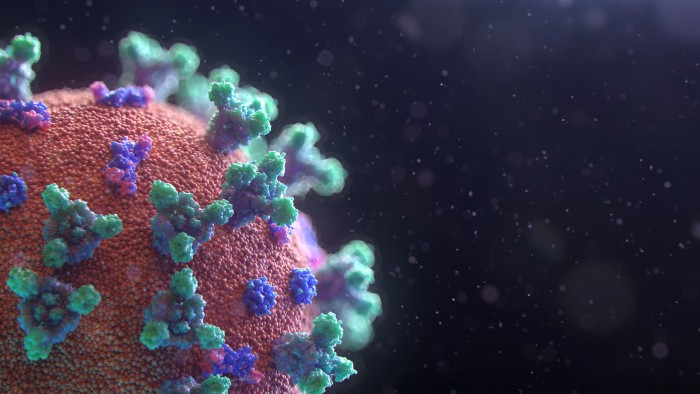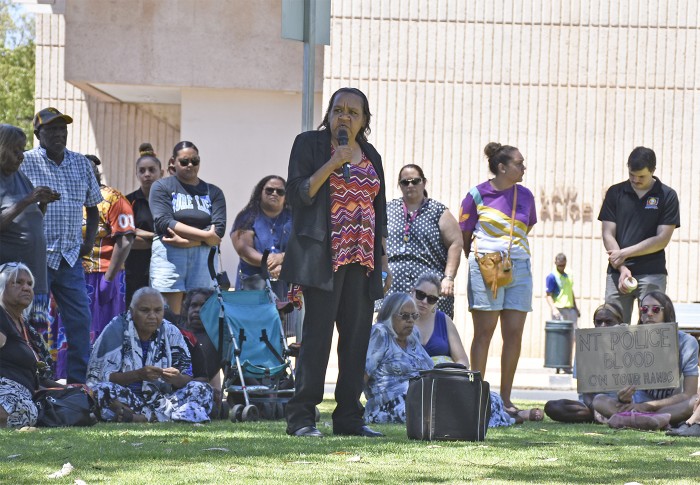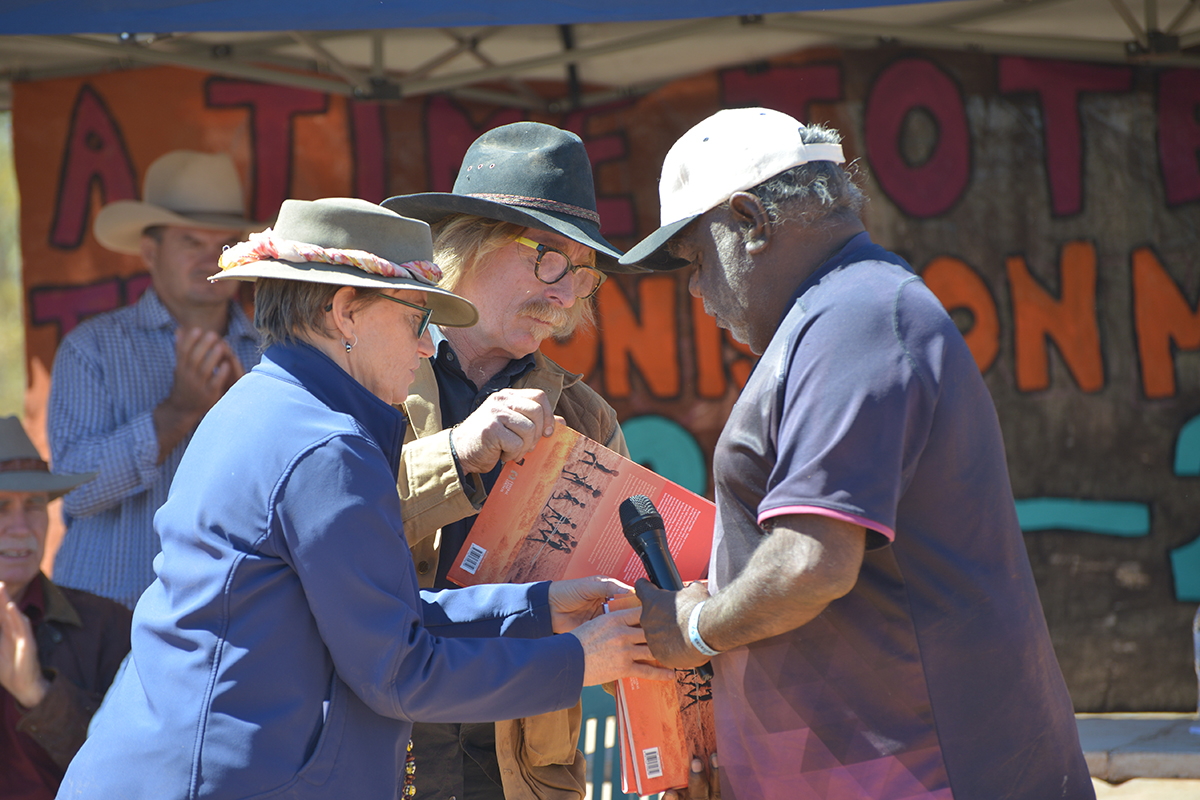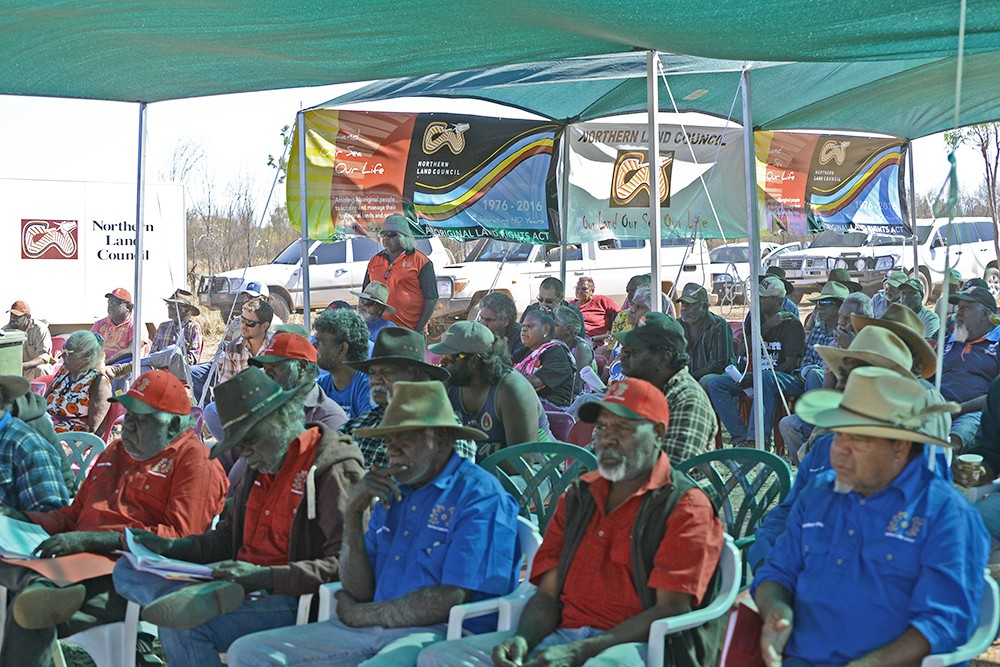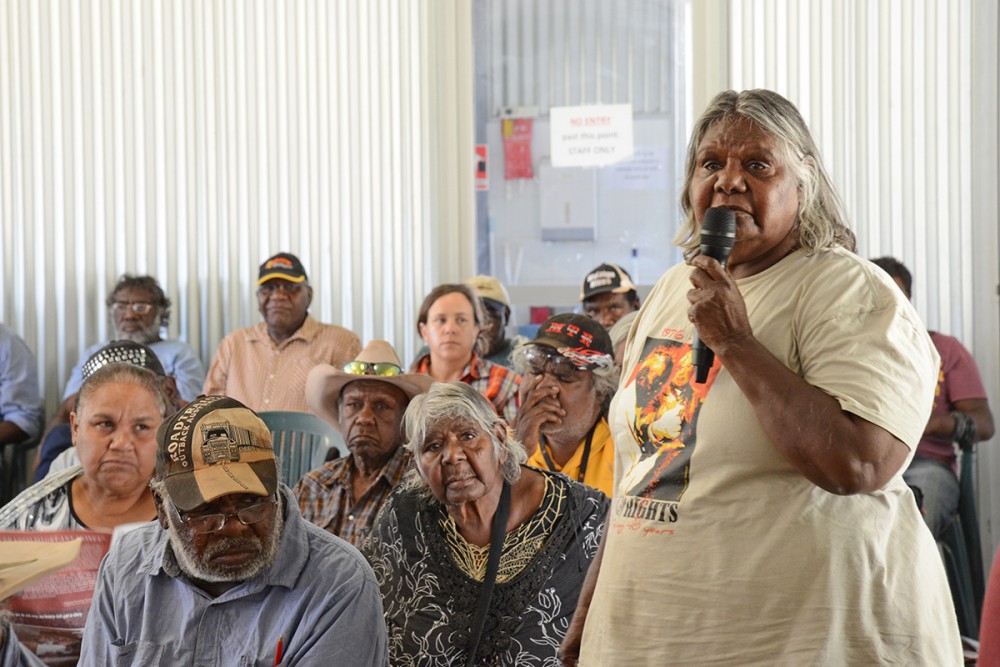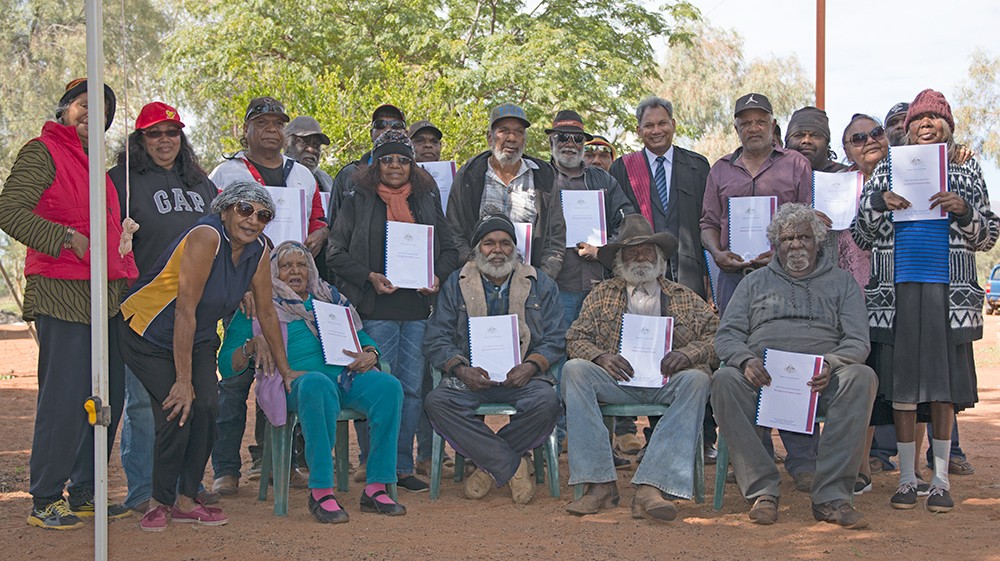
The Central Land Council executive committee met with Police Commissioner Mr Michael Murphy and Arrernte police officer Brad Wallace in Alice Springs on Wednesday 19 June to discuss community concerns about racist behaviour in the NT police force.
The executive members were hoping for a public apology from Commissioner Murphy after he admitted in early June that he had been ‘too busy’ to order an investigation into racist behaviour among elite police officers.
This inaction is particularly egregious, considering there has also been no response to APO NT’s request for an apology from Police Minister Brent Potter for denying the existence of racism in the NT police force, a denial that blatantly disregards the lived experiences of Aboriginal people.
Deputy chair Warren Williams expressed deep disappointment, “While Commissioner Murphy expressed concern and understood our urgent call for an investigation into racism in the NT police force, the refusal to make a public apology shows the entrenched disregard for Aboriginal people.”
Furthermore, the rejection of an independent review called for by APO NT is another devastating blow to Aboriginal people throughout the Northern Territory. This refusal highlights the systemic resistance to accountability within the police force.
Commissioner Murphy acknowledged that there are problems and things have to change, including what measures police will take to achieve this change.
Mr Williams noted, “The CLC is pleased that Leanne Liddle has been brought in to help fix problems in the force, and she has said that she will be at the end of the phone to hear from us when police behave badly, don’t respect local knowledge, or treat Aboriginal people differently when they are called to an incident. We will take her up on that offer.”
Aboriginal representation in the police force is only 12 percent. If Commissioner Murphy’s goal is to reach 30 percent, not just through Aboriginal Community Police and Aboriginal Liaison Officers but all ranks, including senior leadership, this will need sustained and concerted effort far beyond token gestures.
Certificate pathways for Night Patrol workers to become Aboriginal Liaison Officers or Aboriginal Community Police Officers are welcome but need resourcing and implementation.
It was encouraging to hear about establishing a new police station and women’s shelter in Alpurrurulam and supporting local communities’ involvement in recruiting new police officers.
Mr Williams said, “So many communities still have empty police stations and no police. We are forced to call triple zero to get help when serious incidents happen, and we don’t know how the police will behave towards us when they get here.”
“These actions are needed, but the issues of racism go very deep. We understand Commissioner Murphy wants our trust and to work together. We need to see big and lasting changes in the NT police force before we give him that trust. Once we see his plan for fixing the police and he starts acting on that plan, we can begin to rebuild trust.”
Executive member Valerie Martin said, “Our people are still hurting. The Walker death was a tragedy, and the coronial inquest made that pain worse. There are families in Yuendumu that need more support and are still traumatised. We can see there is goodwill, but we will wait and see. The proof will be in the outcomes.”
The time for vague promises and delayed actions is over. The NT police force must take immediate, transparent steps to eradicate racism and rebuild the shattered trust with Aboriginal people.

